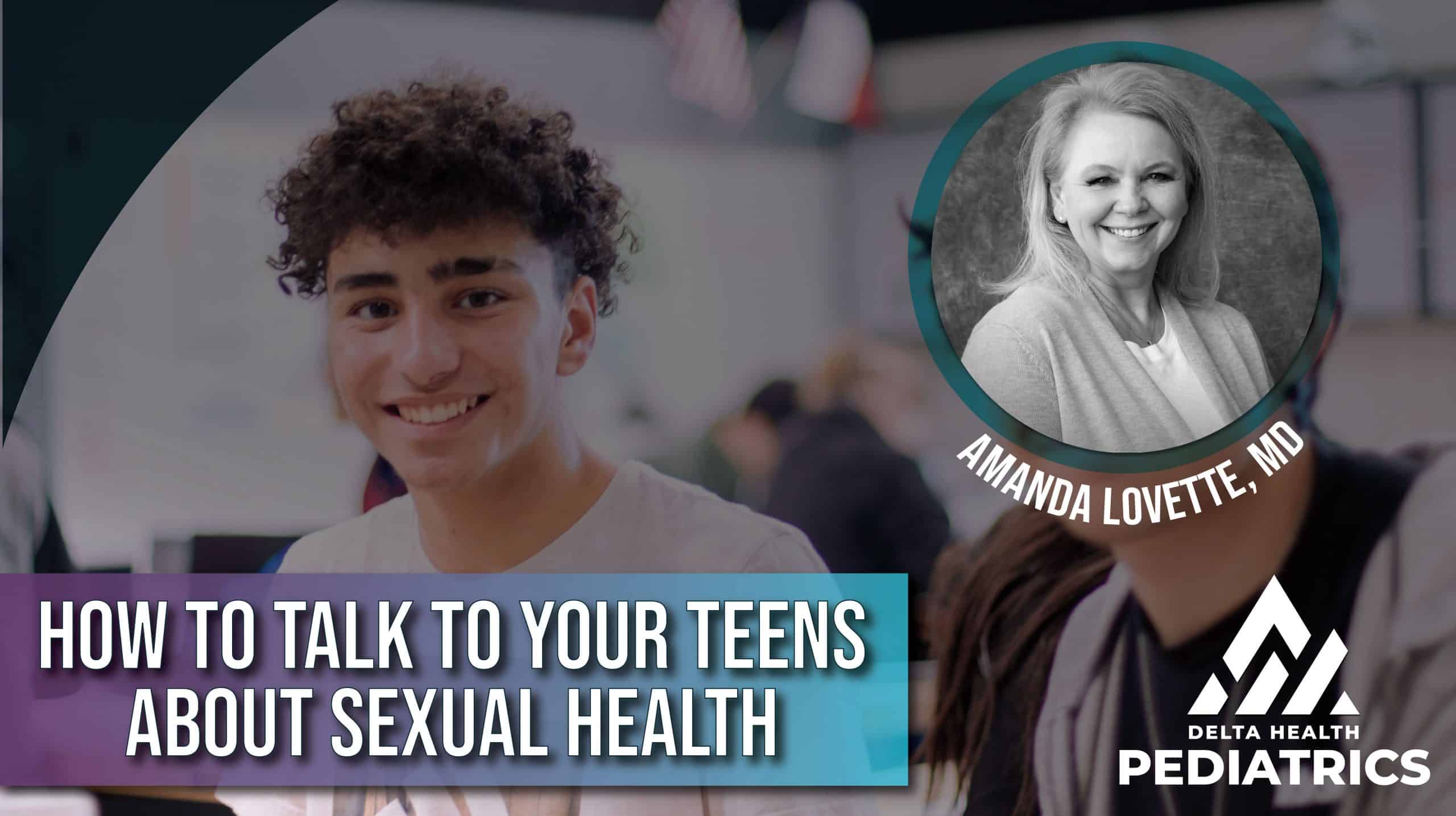Dr. Amanda Lovette, Pediatrician
Most parents cringe when it comes to discussing all things sex with their teenagers. And most teenagers would rather put in headphones and blast music versus talk about sex with their parents. But – it needs to be done.
Talking with your teen about sexual health makes a difference in their life and in their choices. Research shows that parents have the greatest influence over their teen’s sexual decisions, more than friends, family, or social media. What you say to your child matters, as well as how you say it and how often you say it.
So how do you approach a discussion about such a sensitive subject with a teen who would rather take a calculus test that talk to you about it? Here are some suggestions that may help:
- Find times to talk to your teen.
The car is one such place where they cannot escape hearing what you say, and they don’t necessarily have to look at you face to face while you say it. Or, if a TV show or advertisement raises issues about sexual behavior, talk about it with your teen while that moment is fresh. You may even consider texting as a form of communication about responsible sexual behavior, because some teens feel more comfortable expressing themselves and asking sensitive questions in that manner.
- Ask what they know.
Don’t assume they know correct facts, since much of the information they are getting may be from friends or social media. Be direct about facts like infectious risk and unplanned pregnancies.
- Talk frequently.
Studies have shown that a series of conversations instead of a “one and done” conversation about sexual health is more effective at getting the message across and makes a difference.
- Be honest, relaxed and ready to discuss anything.
Talking about healthy sexual behavior is uncomfortable for both teens and adults but if you are relaxed and willing to discuss whatever your teen brings up and are willing to answer with honesty and fairness, you will find your teen more likely to keep the conversation going. They will more likely come to you with any sexual health concerns they have. It’s okay to tell your teen that you may feel a little uncomfortable or that you may need some time to process what has been said to you. But say it lovingly and make sure they know you respect their viewpoint. If you don’t know the answer to their questions, offer to find the answers or to look it up together. Invite your teen to come to you anytime with questions about sex, and reward them with statements like, “I’m so glad you came to me to talk about this.”
- Don’t overreact.
The surest way to shut teens down is to be oversensitive, or make a big deal about what they are asking or what they are telling you. Your teen is sharing personal information with you and wants to know how you feel. Let your teen know that you value their opinion, even if it may differ from yours.
- Take your teen to their health care provider.
Having your teen talk to a trusted healthcare provider and allowing them time alone with the provider to get all their questions asked and answered is important. This is a normal process for each teen well visit, so don’t feel offended or worried if your child wants to speak to the provider without you present. Again, responsible sexual behavior is a sensitive subject and teens may feel uncomfortable about asking certain things in front of their parents.
As the parent, you have the opportunity to positively influence your teen and their decisions about healthy sexual behavior. As uncomfortable as it may be for you both, it’s important to take the time to talk with your teen about sexual health.
For more support and resources, you can contact the Delta Health Pediatrics Clinic. We are currently enrolling new patients. You can call us to make an appointment at 970.546.4000 or visit us online at deltahealthco.org/delta-health-pediatrics/.
Dr. Amanda Lovette is a Pediatrician at the Delta Health Pediatrics clinic located in Delta, Colorado. Lovette specializes in the general healthcare needs of infants, children and adolescents.


